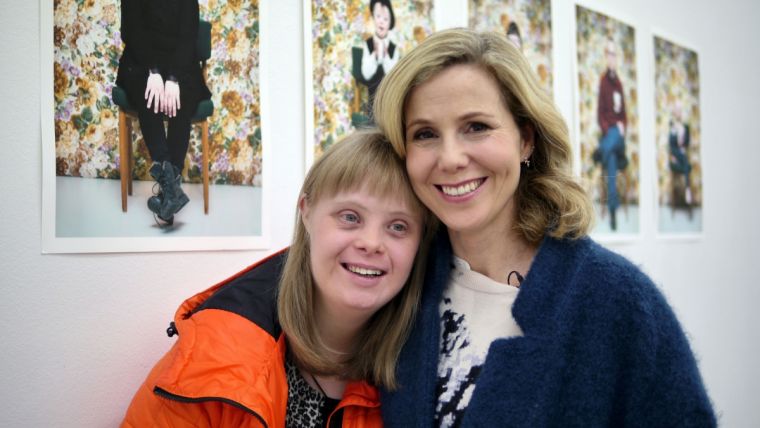We Could Have A World Without Down's Syndrome - But Would We Want To Live In It?

The catch-up and on-demand services offered by broadcasters mean that these days there's very little 'event TV'. It's rare for large numbers of people across the country to sit down and watch the same thing at the same time.
Yet last night it felt like large numbers of British people sat down in front of BBC Two and watched a documentary which could be one of the most significant pieces of TV in a long time. I suppose it felt this way to me not because of the millions of people who tuned in, but because the programme created huge levels of admiration, surprise and controversy on my social media timelines.
Sally Phillips is the mother of an 11-year-old – Olly – who has Down's Syndrome. An incredibly talented and experienced comic actor, Phillips told us Olly's story alongside examining the ethics of screening for Down's Syndrome during pregnancy.
Technology is moving on at such a rate that the accuracy of Down's Syndrome diagnosis is soon expected to be around 99 per cent. The data presented in the programme show nine out of 10 parents choose to have a termination when Down's Syndrome is detected. This means there are now only around 40,000 people in the UK with the condition. Phillips visited Iceland, where 100 per cent of the cases of Down's which were detected led to an abortion.
She spoke to doctors and mothers who'd made decisions to terminate and to keep the baby, as well as interweaving her own personal reflections. It was riveting television. On one level, the conversation was a very specific one – in the words of the documentary's title, the question being asked was whether we want to see 'a world without Down's Syndrome'.
On this basis alone, it was fascinating. For those of us who don't have close friends or relatives with Down's, caricature can easily slip into the place of knowledge - we fear Down's Syndrome as a fate worse than any other. The programme showed this to be nonsense - many people with Down's lead full and rewarding lives and enrich their friends, families and communities. Down's Syndrome is a challenge, for sure, but large numbers of parents took to social media to express their joy at seeing Down's Syndrome not articulated as a disability but as a condition with which their children were able to live well.
Taking a wider lens to our culture, the programme worked on another level. This wasn't just about parents choosing whether to have an abortion because of a prediction of Down's Syndrome. It wasn't even about the wider debate around the ethics of termination per se. It was really about the value we place on human beings, where that value comes from and how we as a society react when someone doesn't fit the mould we have come to expect as 'normal'.
As Western countries have moved from being explicitly Christian in their ethics and practices, we have had something of a mixed track record on how we choose to value our fellow humans. At the same time as the screening for Down's Syndrome was being advanced, we learned that teaching methods for children with Down's Syndrome had been advancing rapidly. So, as more pregnancies ended in termination, those children with Down's Syndrome who were born were being integrated into mainstream schools. While many Western countries have outlawed the death penalty as inhumane, assisted suicide has become more commonplace. While we proudly remember the abolition of slavery in America and the British Empire around 150 years ago, we're told there are now more slaves in the world than ever before. What's worse is they're sometimes making products we consume without a second thought.
All of this points to a crisis in post-Christendom. Which vision of society do we cling to? Are we Utilitarian, seeking the greatest good for the greatest number? If so, then the philosopher Peter Singer may be right when he suggested that, "Killing a disabled infant is not morally equivalent to killing a person. Very often it is not wrong at all."
Yet many of us recoil in horror at this thought. How can it ever be justified to kill a baby with disabilities? This 'instinct' doesn't come from nowhere. It is the legacy of our Christian heritage that means we see all children as being of equal worth. Human dignity has been bequeathed to us by our Judeo-Christian ancestors.
How long will ideas such as human dignity last, if we aren't any longer a 'Christian country?' Can Christian-inspired morality survive at all without the Christian faith it was built upon?
There aren't easy answers and certainly an hour of prime time TV isn't going to solve these complex issues. Yet we should be thankful to Sally Phillips for tackling a sensitive issue head on and with humour. She has helped us to begin to examine some of the presumptions of our society and forced us to look again at who we value and why. In an age of uncertainty and unsettlement about the future, examining how firm the rock beneath our feet actually is, is a valuable exercise.
Follow Andy Walton on Twitter @waltonandy











